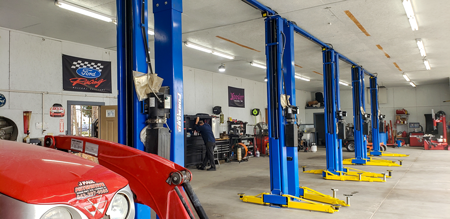All Categories
Featured
A well-maintained engine is the crucial to your automobile's long life and peak efficiency. Regular engine tune-ups not only enhance gas effectiveness however also lower the likelihood of unforeseen malfunctions. Whether you're a car enthusiast or someone who merely wishes to prevent expensive fixings, these engine tune-up suggestions will maintain your car running like a dream.

- Change the Flicker Plugs. The ignition system stir up the air-fuel blend in your engine, and their performance straight affects engine efficiency. With time, spark plugs can break, resulting in misfires, lowered gas economic situation, and slow-moving acceleration.
During a tune-up, inspect and change ignition system if they show indicators of wear, such as soot accumulation, corrosion, or splits. Depending upon your automobile, ignition system may need to be changed every 30,000 to 100,000 miles.
- Evaluate the Ignition System. Your car's ignition system, which includes the ignition coils, supplier, and cables (if relevant), is liable for providing the spark that powers your engine. Faulty ignition elements can create beginning issues and rough engine procedure.
Inspect for damaged or put on parts and replace them throughout your tune-up. Guaranteeing a healthy ignition system will certainly enhance engine integrity and efficiency.
- Clean or Change the Air Filter. A clean air filter allows your engine to "take a breath" properly by guaranteeing a steady flow of clean air. With time, dirt and particles can clog the filter, lowering airflow and impacting gas performance.
Check the air filter throughout a tune-up and change it if it's unclean. For vehicle drivers in dirty or contaminated locations, air filters may require to be altered extra frequently.
- Examine and Clean the Gas System. The fuel system, including the fuel injectors, fuel pump, and gas lines, can gather down payments gradually, lowering gas delivery and engine performance. Use a fuel injector cleaner or have your system professionally cleaned throughout a tune-up to restore proper capability.
Frequently keeping your gas system makes certain better combustion and maximizes your engine's performance.

- Adjustment the Engine Oil and Oil Filter. Engine oil is important for lubrication, air conditioning, and lowering rubbing in between relocating parts. In time, oil degrades and builds up particles, shedding its efficiency.
During a tune-up, change the engine oil and oil filter. Adhering to the producer's recommendations for oil type and adjustment periods is important to keeping your engine in optimum condition.
- Inspect the Belts and Tubes. The belts and hose pipes in your engine compartment play important roles in powering components like the generator, water pump, and a/c system. Deterioration in time can lead to fractures, fraying, or leaks.
Check the condition of belts and pipes during your tune-up and change any that reveal indicators of damages. Proactively attending to these issues can stop costly fixings and unanticipated break downs.
- Check the Battery and Electrical System. A weak or stopping working battery can leave you stranded. Throughout your tune-up, examination the battery's voltage, check the terminals for corrosion, and guarantee the links are limited.
Furthermore, have the alternator and starter checked to ensure they're working properly. Attending to electrical system issues early can conserve you from inconvenient shocks.
- Inspect the Air Conditioning System. The air conditioning system avoids your engine from overheating, which can cause serious damages. During a tune-up, evaluate the radiator, tubes, and water pump for leaks or put on.
Flush and change the coolant if it's filthy or has surpassed its advisable life span. Appropriate cooling system upkeep assists your engine run within its optimum temperature range.
- Address Dashboard Warning Lighting. Modern lorries are geared up with advanced analysis systems that light up warning lights when problems occur. If your control panel displays any type of advising lights, such as the check engine light, address them during the tune-up.
A professional auto mechanic can use diagnostic tools to identify and deal with the issue, preventing small problems from intensifying.
- Maintain Your Engine Clean. A clean engine runs cooler and is less complicated to evaluate for prospective problems. Remove dust, grease, and grime from your engine bay throughout a tune-up. Utilize a degreaser and a gentle brush for cleaning, and stay clear of spraying water directly on electric elements.
Verdict: Tune-Ups Are the Secret to Engine Long Life. Routine engine tune-ups are a financial investment in your lorry's health, performance, and performance. By replacing used parts, cleaning up essential systems, and resolving problems early, you'll ensure your auto stays reputable for many years to find. Whether you're tackling the tune-up on your own or taking your automobile to a trusted technician, adhering to these ideas will maintain your engine performing at its finest and help you stay clear of unexpected repair work. A well-kept engine doesn't simply save you cash-- it ensures assurance on the road.
Latest Posts
Fuel Allie's: A Sweet Journey Back in Time at FunCity Hotel
Demand Info for Your Desire Occasion at Fun City Hotel
Montana Fencing-- Your Partner for Garden, Farm & Ranch Fencing